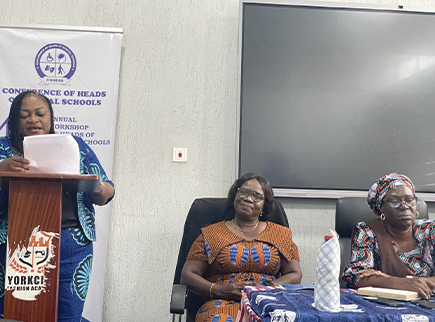The Conference of Heads of Special Schools (COHESS) has appealed to the Government to ensure the prompt release of feeding and administrative grants to special schools.
It also called for the immediate payment of arrears owed to non-teaching and assistive staff, who play a critical role in supporting students with special needs.
The appeals were made during the 42nd Annual Workshop of Heads of Special Schools in Ghana, held in Accra on the theme: “Inclusive Education in Ghana; the Role of Special Schools.”
Madam Roseline Frepomaa Adjepong, Chairperson of COHESS, said the Government owed assistive staff for services rendered as far back as April 2024.
She described the delay as disheartening and demoralising, given the essential care these staff provide in their various schools.
Madam Adjepong also urged the Government to complete abandoned infrastructure projects, renovate dilapidated school buildings, and provide modern teaching and learning materials.
She expressed concern over the lack of official vehicles, particularly administrative ones, stating that special schools had not received any since 2006.
“We are appealing to the Government of Ghana, through the Ministry of Education, and the Ghana Education Service that the next batch of vehicles we must see some at the special schools.
“It always goes to the tertiary institutions, and Senior High Schools. We are waiting for ours, especially the administrative vehicles. The next batch they should consider us,” she said.
Mrs Helena Mensah, Director of the Special Education Division at the Ghana Education Service, called for stronger collaboration between special schools, mainstream schools, and communities to fully realise the goals of inclusive education.
She emphasised the need to support all learners, particularly those with special education needs, with the right resources and trained personnel.
“We must break down the silos and work together in sharing resources, which I know most of the schools do. I invite us all to reflect on how we, as a country, are redefining access, participation, and equity in education for all learners, regardless of their ability or disability,” she added.

